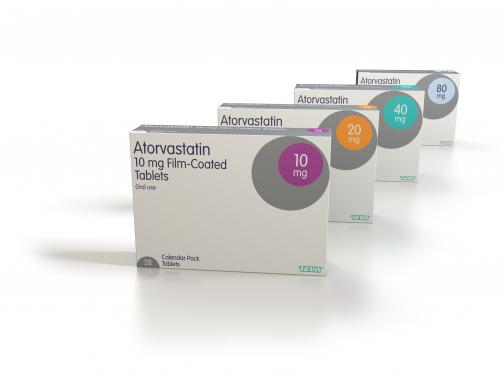
Copycat Lipitor helps toward £1.3bn NHS savings
pharmafile | July 29, 2014 | News story | Research and Development, Sales and Marketing | ABPI, Lipitor, NHS, Teva, prescribing PPRS, vba
In 2013 generic usage increased to more than three-quarters of all NHS prescriptions according to new data released by the Health and Social Care Information Centre (HSCIC).
Much of this is thanks to generic versions of Pfizer’s potent stating Lipitor (atorvastatin), which lost patent protection in the UK in 2012.
The NHS in England spent over £310 million on the anti-cholesterol drug in 2011 befire it went off patent, and was consistently the highest level of spending in England for a single medicine in primary care.
But in 2013, competition from copycat drugs launched by generic giants Teva and Ranbaxy saw the NHS bill for Lipitor plummet to just £42.4 million. This is compared to the £166 million spent on the drug in 2012, and coming despite an increase in scripts for the drug.
In fact generic competition therefore meant that whilst 40% more patients received the drug, the cost to the NHS actually reduced by almost 70 per cent.
There have also been savings elsewhere including several drugs used for hypertension and heart failure, specifically Takeda’s Amias (candesartan cilexetil), where costs fell by £38.8 million from £69.5 million in 2012 to £30.7 million in 2013.
On top of this AstraZeneca’s Seroquel (quetiapine), used for psychoses and related disorders, saw NHS spend fall by £33.7 million; down from £81 million in 2012 to £47.2 million in 2013.
The British generic Manufacturers Association (BGMA), which represents many of these generic companies and their products, says this has helped drive the increase in generic prescription, with additional annual savings of £1.3 billion for the NHS last year.
Total savings for the year, according to the BGMA, was £12.3 billion a year, given the existence of a generics industry.
Warwick Smith, Director General of the BGMA, says: “These NHS figures underline the importance of the generics industry in the UK which provides crucial financial savings for the NHS”.
The HSCIC data show that more than two-thirds of medicines dispensed by the NHS are now generics – although they are only responsible for only 29% of the NHS drug bill.
In fact the patented drugs bill, which tipped £12 billion in 2013, still makes up the vast majority of medicines cost for the NHS, with most of this coming from highly priced biologics for cancer and autoimmune disorders used in secondary care.
It is interesting to note however that despite the large savings from generic medicines that the overall net ingredient cost of prescribing in 2013 was £8.6 billion for primary care, an increase of 1.2% (or £101.9 million) on the cost in 2012.
This in fact follows a period where costs fell, two years in succession, due to the large patent expiries described above. Hospital and community prescribing make up the rest of the total £13 billion medicines bill, both of which also increased last year.
This rise in spend is predominately from drugs for the central nervous system, which has seen the highest increase in cost since 2012, rising to £96.9 million (5.4%) in 2013.
The cost of drugs on the NHS is of increasing concern and in 2013 the UK government announced new pricing measures that would see the NHS’s drug bill stay flat for the next two years and rise by no more than 2% until 2017.
The use of generics certainly keeps cost from growing higher, but the price of new medicines – such as those for cancer and hepatitis C – will keep pressure on the NHS in the years to come.
The government hopes that the PPRS deal will help contain costs, and it will continue to rely heavily on copycat drugs to help in its savings drive.
Emily MacKenzie
Related Content

Digital mental health technologies – a valuable tool in supporting people with depression and anxiety
The potential benefits of digital mental health technology for managing depression, anxiety and stress, together …

Teva’s Ajovy significantly reduces migraine in children and adolescents
Teva’s Ajovy (fremanezumab) has demonstrated significant reduction in monthly migraine and headache days in children …

Teva announces positive results from trial of AJOVY for migraine
Teva has announced positive results from the phase 4 PEARL study of AJOVY (fremanezumab), its …





